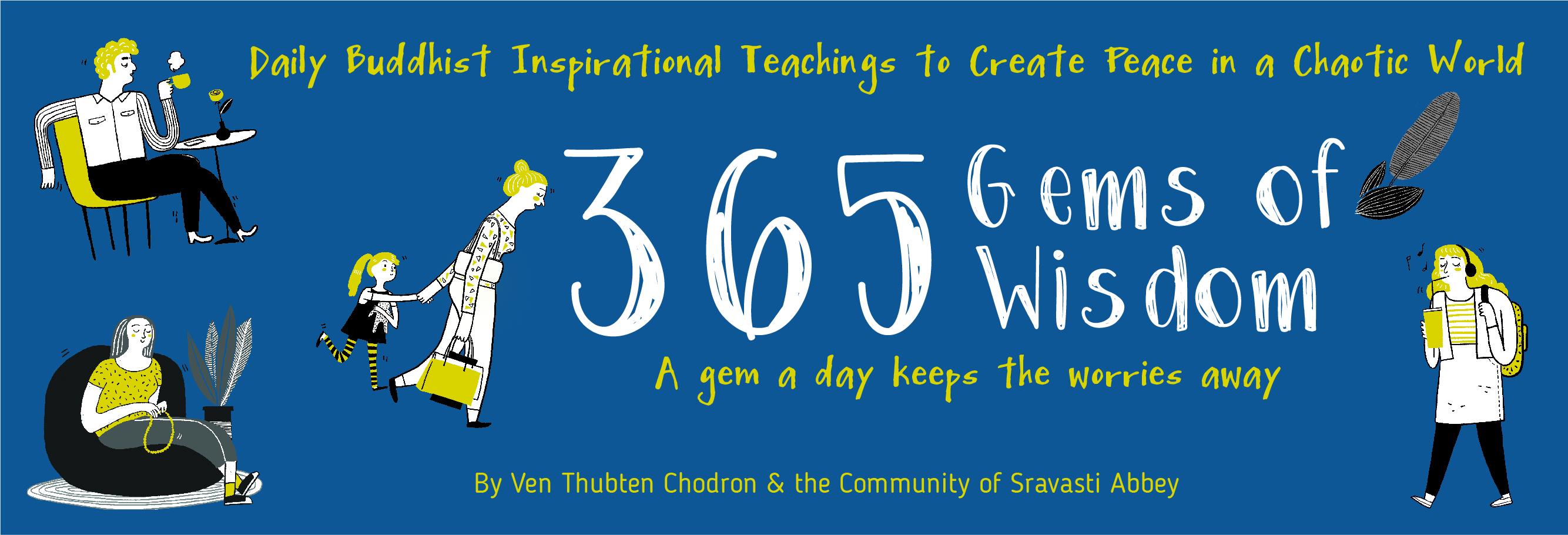February 15 : A Happy Mind
Seeing even Hearers and Solitary Realisers, who accomplish only their own good, strive as if to put out a fire on their head, for the sake of all living beings make enthusiastic effort, the source of all good qualities. This is the practice of Bodhisattvas.
When we really have an idea of what cyclic existence is, there will not be any equivocation or ambiguity about what we should do. Our priorities will be very clear and we will put all our energy towards doing what we need to, instead of lounging around wasting time and getting distracted and depressed. Joyous effort helps us on the method side of the path through practising generosity, ethical conduct and patience, and also on the wisdom side of the path because it takes delight in virtue, from which so many other good qualities follow.
Sentient beings have a skewed way of thinking that all work has to be miserable. Viewing Dharma practice as work, or something we must do like eating spinach as a kid, really impairs our practice and makes us unhappy. If we examine our experience when we practise the Dharma, we find that we are actually happier.
Creating new habits and letting go of the old ones does take energy, but so many of our old habits make us totally miserable. We need to carefully examine the experiences that we think bring us happiness and determine to what degree we are actually happy and to what degree something else is going on. One example is thinking that sleeping brings happiness. If we are not even awake to enjoy it, why do we call sleeping pleasure? We should look at how we feel when we are taking care of ourselves in a healthy, productive way or looking out for the welfare of others. If somebody asks for our help and we choose to do something else, we are aware that we would not let ourselves help the person for just five minutes. But if we say yes and do whatever the person needs, even for half an hour, we feel so much better about ourselves. We get to connect with others by helping them and doing something different from what we ordinarily do.
It is important to make sure that our mind is happy doing whatever we are doing. Even if we are doing something only because we must and we are unhappy, at least we can put it in a Dharma framework, like, “I’m offering service,” or, “I’m overcoming my attachment to pleasure.” In this way, we can take joy in the action and transform it into something virtuous. Doing things with joyous effort is very different from pushing ourselves because it transforms the mental attitude of “I should” into “I want to”, which makes whatever we are doing joyful. This training takes a while, but eventually we find that we can be happy doing many kinds of things that we never could have imagined enjoying previously.
“365 Gems of Wisdom” First Volume (January — March) e-book is out now!

